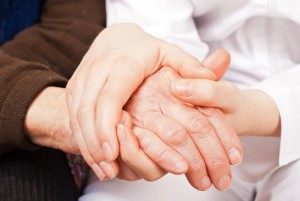 A question we often hear. It’s worrying and distressing enough when someone is admitted to hospital, not only for the patient but for family members as well. Of course it’s even more troubling if that patient has a condition such as dementia, which can cause confusion, memory loss and an impaired ability to communicate. Family members often report concern about the care being provided to their relatives in such cases, with some relatives complaining of undignified treatment of the patient.
A question we often hear. It’s worrying and distressing enough when someone is admitted to hospital, not only for the patient but for family members as well. Of course it’s even more troubling if that patient has a condition such as dementia, which can cause confusion, memory loss and an impaired ability to communicate. Family members often report concern about the care being provided to their relatives in such cases, with some relatives complaining of undignified treatment of the patient.
Patients not treated with dignity
In 2013 the London School of Economics undertook an analysis of patient data and found that “the numbers of patients who were not treated with dignity and respect and were not helped to eat was too high in the “vast majority” of NHS hospital trusts.” The statistics showed that:
“23% of patients – equivalent to 2.6m patients, including more than 1m over 65s- said they had encountered poor or inconsistent standards of dignity and respect“
As experienced clinical negligence lawyers we see too many cases where patients are left without food and water because they are not given the assistance they need to eat and drink. Patients who cannot feed themselves can end up malnourished as a result of this failure to provide assistance, which can cause a serious deterioration in their health. The statistics showed that:
“One in three patients who needed help eating did not receive it. That’s 1.3m patients a year, of whom 640,000 are aged at least 65.”
Patients who fall in hospital
Another area of concern for families is where the patient becomes confused and strays in the night – especially dangerous where the patient has a history of falls. The report said
“Among older people, women, those over 80 and patients with a longstanding illness or disability, for example the deaf or blind, were more likely to receive inadequate care.”
The National Institute for Health and Care Excellence (NICE) guidelines recommend that all patients who require treatment as a result of a fall, or who report recurrent falls in the preceding year should be offered a multi-factorial falls risk assessment, ideally from a specialist falls service. The assessment should be performed on admission to hospital so that staff are alerted to the risk.
Where a risk falling is highlighted, steps should be taken to prevent further falls. In some cases this will involve putting the patient in a bed nearest to the nurses’ station so that they can keep the patient under supervision. The assessment can also highlight the need for assistance when mobilising.
Steps taken to help protect vulnerable patients
Looking at this information, its hardly surprising that relatives have shown concern – and have been justified is doing so. It should be noted, however, that the report was based on data from 2012 – 2013 and hospital trusts have now put measures in place to safeguard vulnerable patients.
When appropriate steps are taken by a trust a vulnerable patient should feel safe and be treated with dignity and respect. In 2015 the Care Quality Commission confirmed that 81% of patients reported that they were always treated with dignity and respect. Sadly this suggests that 19% of patients had concerns but at least improvements have been made.
Medical negligence specialist, Nikki Yavari says “We hope that all patients receive appropriate treatment when in hospital. Of course it is even more important when they are vulnerable and might need that extra care. However, we know it doesn’t always happen, so if you have concerns about the care that you, or your relatives, have received please contact our specialist team for a confidential meeting.”
Our experts Nikki Yavari and Petra Heath are ‘Dementia Friends’. They have expertise in dealing with vulnerable clients and are happy to help if you need extra support.
You can read more about making claims against a hospital on our web pages.
